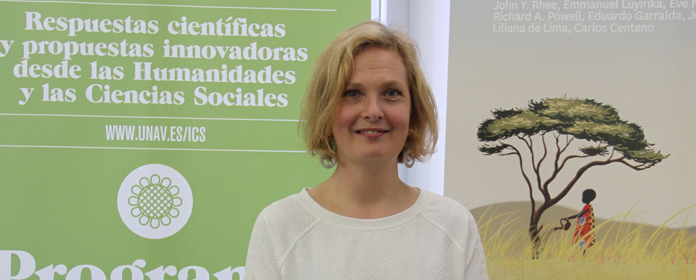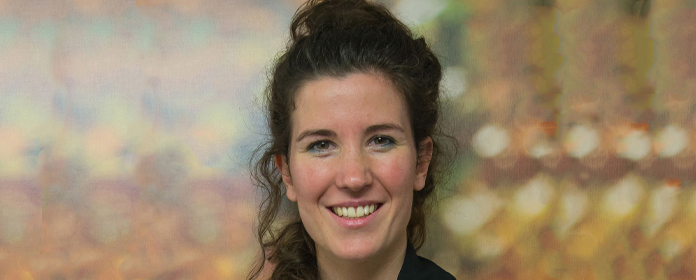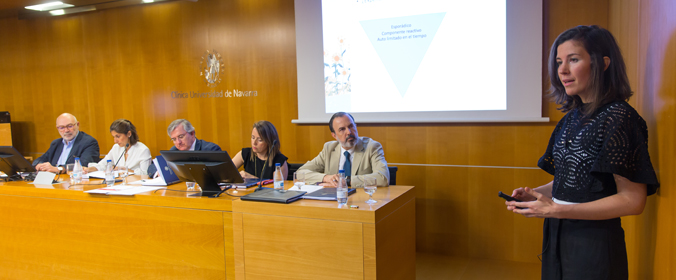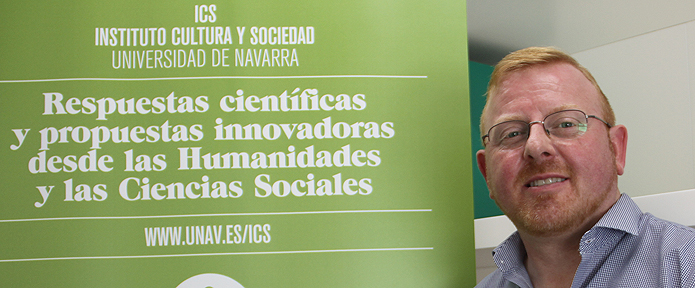“No sé si deberíamos estar preparados para la muerte, creo que lo importante es preguntarnos cómo no tener miedo”
Marian Krawczyk, socióloga y antropóloga de la Universidad de Glasgow, acudió al Instituto Cultura y Sociedad a impartir una conferencia para el Programa ATLANTES

FOTO: Elena Beltrán
“Aunque la muerte sea un proceso natural no creo que podamos estar preparados. Lo importante es preguntarnos cómo podemos no tener miedo”, afirma Marian Krawczyk. Como respuesta propone una serie de cambios sociales en las bases de lo que creemos. Considera que tenemos que cuestionar la idea de que solo hay valor en “la juventud, la autonomía y la salud”.
“Puede que haya valor en el proceso de morir, de algún modo”. De la misma forma que en la niñez hay valor y no se desea que un niño la pase cuanto antes para que sea adulto, propone que apreciemos el valor que puede tener la muerte. Marian Krawczyk, socióloga y antropóloga de la Universidad de Glasgow, presentó un seminario sobre cuidados paliativos al Programa ATLANTES del Instituto Cultura y Sociedad de la Universidad de Navarra.
Sin embargo, aunque se pueda apreciar de algún modo el morir, reconoce que no deja de ser un proceso incierto: “Con los nuevos tratamientos es difícil conocer cuando la vida se va a acabar”. A causa de esto, en muchas ocasiones, no se sabe si tratar a una persona o si esto le va a causar demasiado sufrimiento. “Se suele tomar la opción más segura, que es tratar”.
El hecho de que sea un proceso incierto afecta a las unidades de cuidados paliativos. “Requiere mucha voluntad trabajar en lo que se llama la zona gris”. Esto supone que los médicos deben ser “muy flexibles” y estar “cómodos con la incertidumbre”. Lo que además se debe acompañar del hecho de tener que hacerlo “cada vez en menos tiempo”. Una forma de lidiar con este problema, según la experta, es tener un equipo multidisciplinar con el que hablar de los casos regularmente para poder mejorar.
Retos de los cuidados paliativosLa experta realizó un trabajo durante un año en dos hospitales de Canadá para entender mejor los retos de cuidar a las personas y ayudarles a tener una buena muerte. Uno de los principales desafíos que señala la socióloga es mejorar la percepción que tienen de los mismos otras especialidades. “Algunos médicos los perciben como abandonar al paciente y es importante cambiar esto”.
Otro gran problema al que se enfrentan los cuidados paliativos es que “los pacientes están más enfermos”. Esto se debe a que aunque los tratamientos que se les da a los pacientes les permiten vivir más, viven más años pero con más síntomas. También es importante saber cuándo “no dar más tratamientos”, aunque es un tema difícil, reconoce la experta.
Otro reto que señaló es la “austeridad a la que se enfrentan algunos hospitales”. La falta de recursos de muchos centros sanitarios implica que en ocasiones algunos pacientes sean mandados a casa “demasiado rápido”. Esto provoca que los médicos tengan que “pelear con la administración” lo que desgasta a los profesionales.




